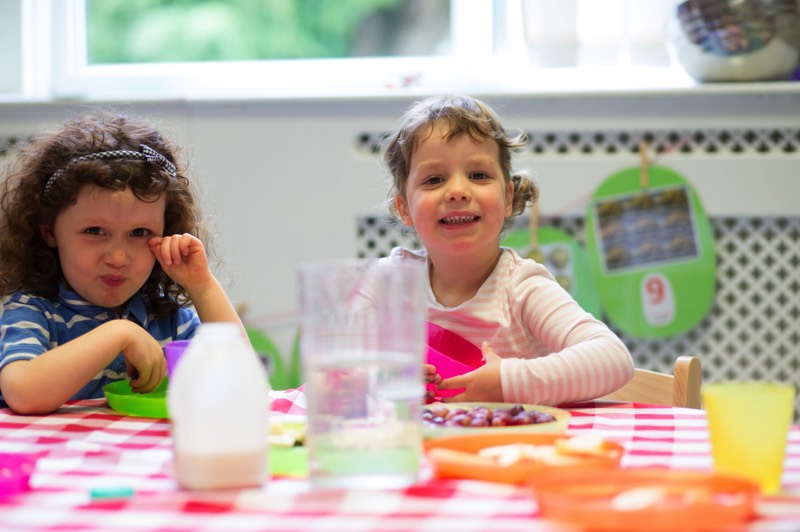EDUCATION
Surrey’s Premier Lifestyle Magazine
Connecting character and contentment
Michael Connolly, headmaster of Cranmore School, considers the importance of modern foreign languages in the school curriculum.

It hardly needs stating that all parents want their children to be happy at school. However, in recent years one regularly sees articles in the press about young people finding school life to be very stressful. So what is really going on? Is there a fundamental flaw with the way schools operate today or is there some other underlying cause?
This is a complex issue which has been hotly debated by educationalists, sociologists and psychologists. One thing is clear, it is not a phenomenon unique to the UK. A recent survey1 covering High School students across the whole of the USA gave a rather bleak message: tired (39%), stressed (29%), and bored (26%) were the three most common responses to the survey of 22,000 students inquiring about how they currently felt in school. A similar survey conducted by the American Psychological Association found that 27% of students suffer from extreme stress during the school year.
Some schools have tackled the issue of pupils being tired by implementing a radical solution. For example, there is a body of scientific research which indicates that teenagers have a different ‘body clock’ so it is better for them to have a later start to the working day! Several schools have made headlines because they have implemented such a novel approach. One school in Kent2 decided it would be sensible to change the timetable so that on Mondays, Tuesdays and Wednesdays 14 to 18-year-old pupils start lessons at 11.30 am. This all sounds fine in theory but, inevitably, it can be disruptive to family life if your son or daughter is effectively living within a different time zone.
This is a complex issue which has been hotly debated by educationalists, sociologists and psychologists. One thing is clear, it is not a phenomenon unique to the UK. A recent survey1 covering High School students across the whole of the USA gave a rather bleak message: tired (39%), stressed (29%), and bored (26%) were the three most common responses to the survey of 22,000 students inquiring about how they currently felt in school. A similar survey conducted by the American Psychological Association found that 27% of students suffer from extreme stress during the school year.
Some schools have tackled the issue of pupils being tired by implementing a radical solution. For example, there is a body of scientific research which indicates that teenagers have a different ‘body clock’ so it is better for them to have a later start to the working day! Several schools have made headlines because they have implemented such a novel approach. One school in Kent2 decided it would be sensible to change the timetable so that on Mondays, Tuesdays and Wednesdays 14 to 18-year-old pupils start lessons at 11.30 am. This all sounds fine in theory but, inevitably, it can be disruptive to family life if your son or daughter is effectively living within a different time zone.
Sir Anthony Seldon, the former headmaster of Wellington College, was mocked by some of his peers when it was suggested that he had introduced ‘happiness studies’. In fact, many now concede that he was ahead of the game by identifying the need to structure the curriculum in a way that supports the mental health of pupils. In his book – Beyond Happiness – he cites the work of Martin Seligman, a leading figure in positive psychology who has suggested that happiness depends upon PERMA: Positive Emotions, Engagement, Relationships, Meaning and Accomplishment. However, Seldon righty points out that this is not quite the panacea which it appears at first glance. For example, if we link our happiness to ‘accomplishment’ then we become a hostage to fortune. We have all heard of high achievers who are never satisfied and can be very self-critical of their performance.
Another distinguished former headmaster, Rev Christopher Jamison, offers a more profound answer in his book – Finding Happiness. He believes that it has been a good thing for schools to consider the ’well-being’ of their pupils in a more formal way. However, he goes on to point out that goodness and virtue are essential components of happiness. Of course, this idea is not new. It is firmly rooted in all the major religions and can be traced back to the philosophy of Socrates.

What is the way ahead? Yes, we must try to encourage young people to become less attached to technology and social media and thereby allow them to engage with each other in person. This will give them more periods of quiet, reflective time in which they can recharge their batteries. But this is not enough. Good schools recognise that it is character formation which is the key to developing happy, contented, confident young people. This is no easy task and requires an ongoing commitment to do the very best to help each pupil at every stage of their educational journey, from nursery until they leave the school.
Cranmore was graded excellent for every category in its most recent inspection report, but it was reassuring to see that the quality of pastoral care was identified as being of particular note: “The pupils’ personal development is supported by excellent pastoral care, based on the teachers’ good knowledge of individuals, and caring relationships.”
In my view, this is the best strategy to ensure that pupils do not fall into a pit of self-doubt and misery. It is the quality of the relationships between staff and the pupils in their care which ultimately determines the pupils’ well-being.
In my view, this is the best strategy to ensure that pupils do not fall into a pit of self-doubt and misery. It is the quality of the relationships between staff and the pupils in their care which ultimately determines the pupils’ well-being.
essence info
Cranmore School has announced a programme of change to become a fully co-educational school for pupils aged two and a half to thirteen years.It is committed to providing a balanced curriculum which can develop each child’s potential. French, Spanish, Mandarin, Latin and Greek are taught.
Telephone: 01483 280340
Website: www.cranmoreprep.co.uk



